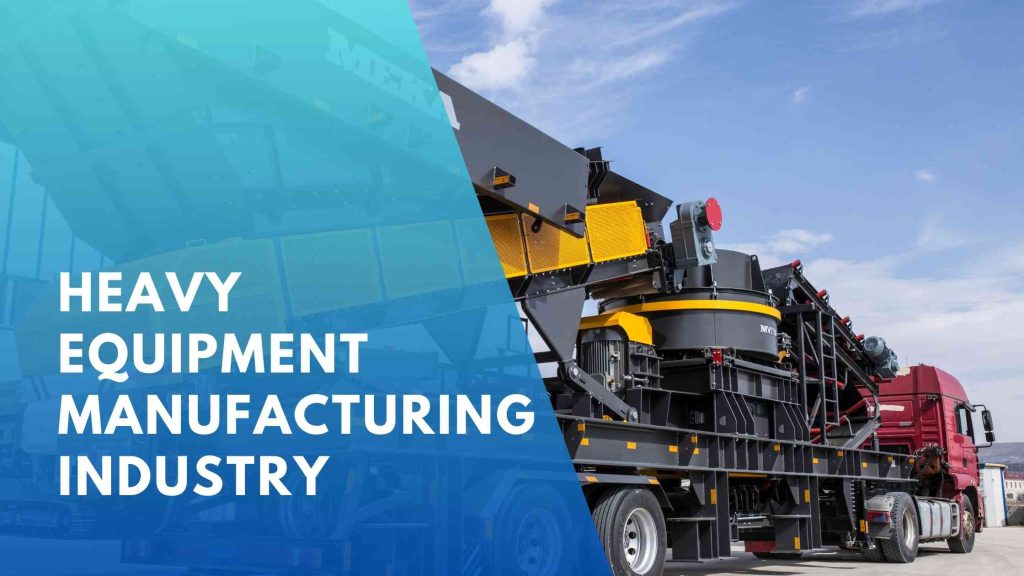The heavy equipment manufacturing industry is characterized by its complex operations, intricate supply chains, and the need for efficient resource management. Heavy equipment manufacturers can harness the power of ERP systems to navigate these challenges and drive success. This article explores critical ERP features and how they can enhance the heavy equipment manufacturing industry, enabling streamlined operations, improved productivity, and heightened profitability.
Inventory and Supply Chain Management:
Adequate inventory and supply chain management are crucial in heavy equipment manufacturing. ERP systems offer features that optimize these processes, such as:
Inventory Tracking:
ERP systems provide real-time visibility into inventory levels, locations, and movements. It ensures accurate inventory management, reduces stockouts, and optimizes production planning.
Demand Planning:
ERP systems facilitate demand forecasting based on historical data and market trends. It enables manufacturers to align production schedules, optimize resource allocation, and ensure timely delivery of heavy equipment.
Supplier Management:
ERP systems streamline supplier management processes, including vendor selection, procurement, and collaboration. It enhances supply chain efficiency, reduces costs, and ensures timely raw materials and components availability.
Production Planning and Control:
Efficient production planning and control are essential for heavy equipment manufacturers to optimize operations and meet customer demands. ERP systems offer features that enhance these aspects, such as:
Production Scheduling:
ERP systems enable manufacturers to create production schedules, allocate resources, and manage work orders. It ensures optimized production flow, minimizes bottlenecks, and maximizes equipment utilization.
Shop Floor Control:
ERP systems provide real-time visibility into shop floor activities, allowing manufacturers to monitor production progress, track work-in-progress, and make timely adjustments. It facilitates efficient workflow management and reduces production cycle times.
Quality Control:
ERP systems include modules that enable manufacturers to define quality standards, conduct inspections, and track non-conformances. It ensures adherence to quality requirements and minimizes rework or customer returns.
Financial Management:
Accurate financial management is vital for heavy equipment manufacturers to track costs, optimize profitability, and make informed business decisions. ERP systems offer comprehensive financial management features, including:
Cost Accounting:
ERP systems enable manufacturers to track costs at various stages of production, including materials, labor, and overheads. It allows for accurate cost analysis, cost control measures, and better pricing decisions.
Budgeting and Forecasting:
ERP systems provide budgeting and financial forecasting tools, helping manufacturers plan and allocate resources effectively. It facilitates proactive financial management and ensures financial stability.
Financial Reporting:
ERP systems generate detailed financial reports, including balance sheets, income, and cash flow statements. These reports provide insights into financial performance and profitability analysis and help comply with regulatory requirements.
Maintenance and Service Management:
Effective maintenance and service management are critical for heavy equipment manufacturers to ensure equipment uptime, reduce downtime, and provide exceptional customer support. ERP systems offer features that support these functions, such as:
Equipment Maintenance:
ERP systems facilitate preventive and predictive maintenance, enabling manufacturers to schedule and track maintenance activities. It enhances equipment reliability, extends asset life, and minimizes unplanned downtime.
Field Service Management:
ERP systems help manage field service operations, including scheduling, dispatching, and tracking service technicians. It ensures timely customer support, efficient service delivery, and enhanced customer satisfaction.
Acumatica ERP systems provide comprehensive features in the heavy equipment manufacturing industry that significantly enhance operations, streamline processes, and drive overall success. Heavy equipment manufacturers can optimize resource utilization, improve productivity, reduce costs, and deliver high-quality products by leveraging ERP features such as inventory and supply chain management, production planning and control, financial management, and maintenance and service management.
Implementing an Acumatica ERP system tailored to the heavy equipment manufacturing industry empowers manufacturers to meet customer demands, navigate complex supply chains, and achieve operational excellence. By embracing ERP features, heavy equipment manufacturers can stay competitive, adapt to market changes, and enhance their position in the dynamic heavy equipment manufacturing industry.

Vijay comes with a vast experience in ERP and enterprise solutions space with about 20 years of experience in various packaged application like Acumatica, SAP, Orion, Salesforce.com, SugarCRM and, SalesLogix.

